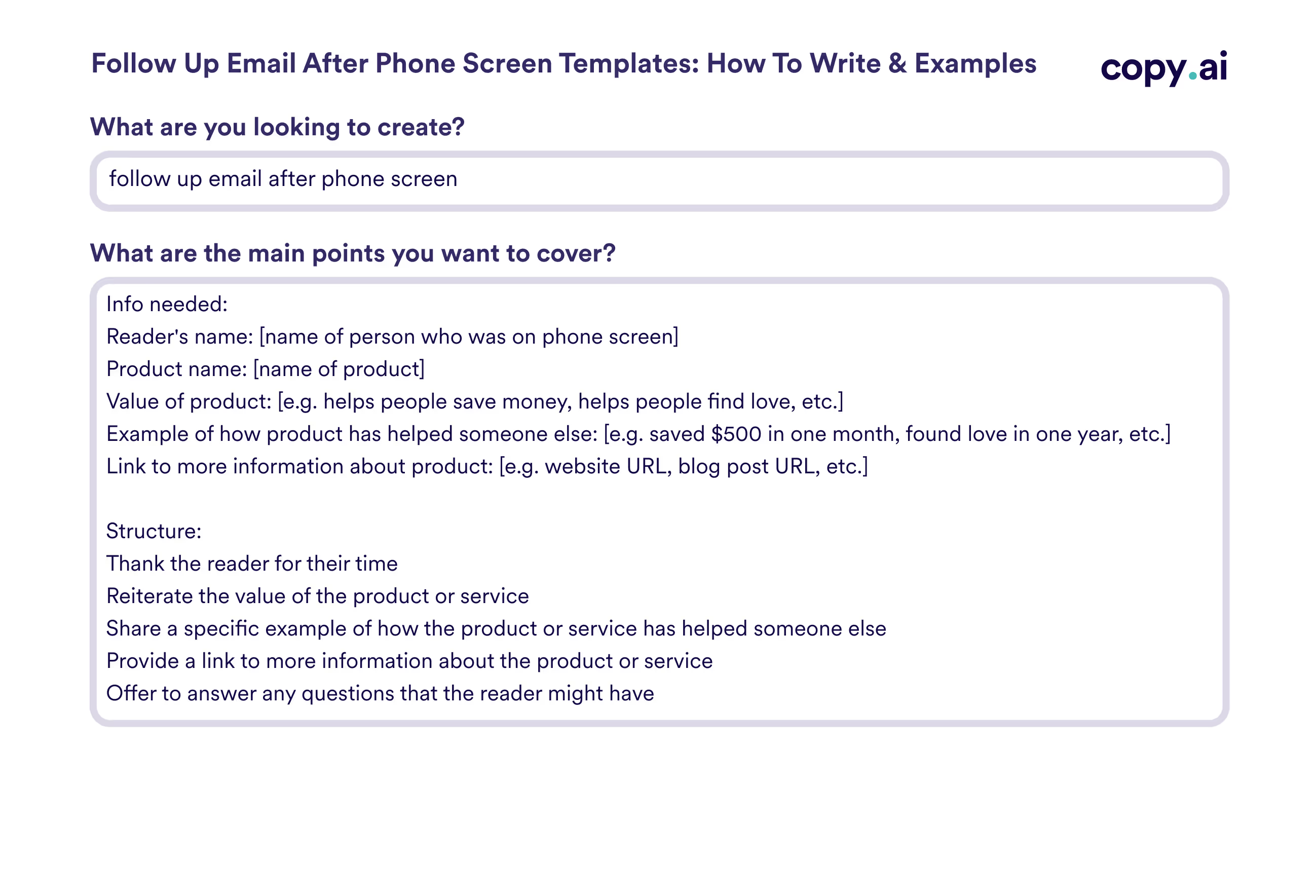Salary Negotiation Email Templates: How To Write & Examples

Frequently Asked Questions
Need to write a salary negotiation email? Here are 3 simple steps to get started:
1. Gather the information you need to know.
Before you write anything, you need to know who or what you're writing about. The more specific you are, the more personalized you can make your content.
Here's our suggestions for writing a salary negotiation email:
Hiring manager's name: [name of hiring manager]
Company name: [name of company]
Position title: [title of position]
Offered salary: [salary offered]
Counteroffer: [salary you want to be paid]
2. Determine the structure of your output.
The structure of your content is just as important as the content itself. The structure of your content is how you're going to arrange the information in the content to make it easier for the readers to read and understand.
Thank the reader for the offer
Express excitement about the opportunity
Explain why you are worth more than the offered salary
Make a counteroffer
3. Write the content or use Copy.ai to help you get started. Once you have your structure down, you can start writing the content.
Example:
Dear [name of hiring manager],
I am thrilled to receive the offer of [position title] at [company name].
I'm excited to join the team and to do my part in helping you achieve your goals.
I understand that the offer is for [salary offered] per year. However, I believe that my experience and skills will make me a valuable asset to the team. I would therefore like to counteroffer with a salary of [salary counteroffer].
Thank you again for considering me for this position. I look forward to hearing from you soon.
Example:
Hi [name of hiring manager],
Thank you so much for the opportunity to apply for the [title of position]. I am excited to work with you and the team at [company name].
I am excited to learn more about the role and what it will entail, but I wanted to make sure that I was being compensated fairly for the work I do. It's important to me that I am compensated at a rate that reflects my experience, particularly as I've never held a position like this before. I believe that [salary counteroffer] is a fair number for what I'm looking for in this role.
If you agree, I look forward to hearing from you!
Example:
Hello [name],
I wanted to reach out to you and express my excitement about the opportunity that you have presented me. I believe that [company] is an amazing company, and I would be honored to be a part of its team.
I am also very excited about the role itself, and what it offers me. It aligns with my skills, interests, and career goals, and would allow me to expand my skill set and responsibilities.
I feel that my experience is well suited for this role, and that my skills would be very beneficial to the company.
As you can see from my resume, I have 10 years of experience working as an Account Manager. During this time, I have managed teams of up to 5 people, managed budgets of $10 million annually, and supervised the planning and execution of campaigns for a variety of different clients. I have also developed strong relationships with clients and colleagues.
I am sure that my skills and experience will prove to be very beneficial to [company], and I am excited to be part of the team!
If possible, I would like to discuss compensation with you further. As you know, I am seeking a salary of $[salary amount].
1. The first reason to write a salary negotiation email is to establish a clear and concise communication channel with your potential employer. By doing this, you can avoid any potential miscommunication or misunderstanding about your desired salary and benefits.
2. The second reason to write a salary negotiation email is to demonstrate your professionalism and commitment to the negotiation process. By sending a well-written and thought-out email, you can show that you are serious about getting the best possible compensation for your skills and experience.
3. The third reason to write a salary negotiation email is to document your request and the employer's response. This can be helpful in the event that there is a disagreement later on down the road about what was said or agreed upon. Having a written record can help to resolve any disputes.
-A person who has been working at a company for several years and feels they are underpaid
-A person who is being offered a job at a new company
-A person who is switching jobs within the same company
-A person who is promoted within their company
-A person who is taking on a new role with more responsibility within their company
-A person who has been with their company for a long time and is up for a raise
-A person who is leaving their current company to go to a new company
-A person who is starting a new job and is negotiating their salary
Check out our blog!
You can learn how to write a blog post or even see examples of good Instagram captions.
If you're looking to start a business, you can discover side hustle ideas and even how to sell Notion templates!
Related Templates
How it works




.avif)

Ready to level-up?
Write 10x faster, engage your audience, & never struggle with the blank page again.
.svg)
.svg)









